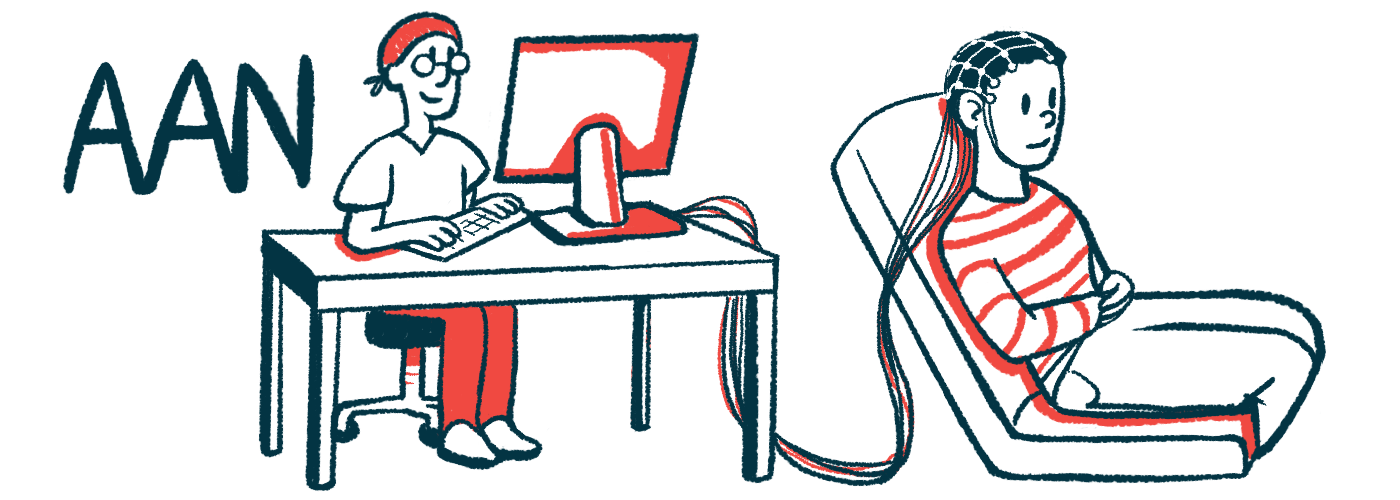#AAN2022 – Allopregnanolone Found Safe, May Ease Brain Atrophy
Written by |

The therapeutic candidate allopregnanolone is safe and well-tolerated in people with early Alzheimer’s disease, according to data from a Phase 1b/2a clinical trial that also investigated the medication’s maximum-tolerated dose.
Moreover, MRI scans showed that allopregnanolone — dubbed ALLO by researchers — may protect against brain tissue loss in these patients.
“Allopregnanolone was well-tolerated and safe across all doses. Safety, MTD [maximum tolerated dose] and [pharmacokinetic] parameters of ALLO support advancement to a Phase 2 proof-of-concept efficacy clinical trial of ALLO as a regenerative therapeutic for mild [Alzheimer’s] disease,” the researchers wrote. Of note, pharmacokinetics refers to a treatment’s movement into, through, and out of the body.
A Phase 2 trial is already underway. Called REGEN-BRAIN, the double-blind, placebo-controlled trial (NCT04838301) is assessing the safety and efficacy of about a year of allopregnanolone in 200 people with mild Alzheimer’s-associated dementia and the APOE E4 Alzheimer’s risk genetic variant. It will be followed by a six-month open-label phase, in which both participants and researchers know which patients are actually receiving the experimental therapy.
The data from the Phase 1b/2a trial were reported at the American Academy of Neurology (AAN) 2022 Annual Meeting, in a poster titled “Allopregnanolone as a Regenerative Therapeutic for Early Alzheimer’s Disease: Phase 1b/2a Clinical Trial Outcomes.”
While the exact cause of Alzheimer’s is unknown, the disease leads to the death of nerve cells. The buildup of a protein called amyloid-beta is thought to contribute to this process.
Allopregnanolone is formed naturally in the brain when a hormone called progesterone is broken down. Once produced, it is associated with beneficial effects in the brain, including the regeneration of nerve cells.
It has been shown that Alzheimer’s patients have low brain levels of allopregnanolone compared with healthy people. Data from animal models of Alzheimer’s showed that allopregnanolone treatment promoted nerve cell regeneration, reduced the buildup of amyloid-beta, and restored cognitive function.
Researchers from the University of Arizona led the randomized, double-blind, placebo-controlled trial (NCT02221622) reported on at the AAN meeting. That trial assessed the safety, tolerability, and feasibility of single or multiple ascending doses of allopregnanolone in 24 people older than 55 with early Alzheimer’s disease.
The participants received allopregnanolone or a placebo via weekly into-the-vein (intravenous) infusions for 12 weeks, or about three months. They were monitored during a one-month follow-up.
Those who received the treatment were split into three groups of six patients. One group received a dose of 2 mg per infusion, another received a 4 mg dose, and the last received increasing doses ranging from 6-18 mg. The remaining six participants received a placebo.
The study’s primary goal was to determine the treatment’s safety and tolerability, with secondary goals of investigating its pharmacokinetics and the maximum-tolerated dose. Other exploratory measures included changes to cognitive function and MRI imaging parameters.
Results showed that allopregnanolone was generally well-tolerated and safe. Most reported side effects were mild or moderate in severity, and their incidence did not differ between treated and untreated participants. The most commonly reported side effects included rash (22%) and fatigue (17%). One reported side effect — a case of non-serious dizziness — was attributed to allopregnanolone. The treatment did not have adverse effects on cognition or MRI-based outcomes throughout the study.
Allopregnanolone was shown to promote nerve regeneration at some concentrations. However, at too high a dose, it actually can suppress it. That means that the concentrations of the drug in the body are important, the team noted.
A pharmacokinetic analysis showed that concentrations of allopregnanolone reached in the blood were at levels expected to promote nerve regeneration, the researchers said.
Some participants experienced mild sedation at the highest doses of allopregnanolone. Based on this data, the researchers determined that the highest tolerable dose was 10 mg for males and 14 mg for females.
MRI findings indicated a trend of decreased atrophy of the hippocampus — a brain region known to be involved in Alzheimer’s — in allopregnanolone-treated patients. Participants carrying the ApoE E4 genetic variant, a known Alzheimer’s risk variant, saw the greatest gains.
The team also observed signs, in treated patients, of greater integrity of white matter, which contains mostly nerve cell projections. Greater functional connectivity also was seen between brain regions, suggesting that allopregnanolone may restore more normal nerve cell communication, the researchers suggested.
The primary goal of the REGEN-BRAIN trial is to assess changes in hippocampal tissue volume in ApoE E4–positive patients after allopregnanolone treatment (4 mg). Secondary trial goals include changes in other MRI parameters, cognition, and life quality.
REGEN-BRAIN is expected to be completed in June 2024.
Note: The Alzheimer’s News Today team is providing coverage of the American Academy of Neurology (AAN) 2022 Annual Meeting.






